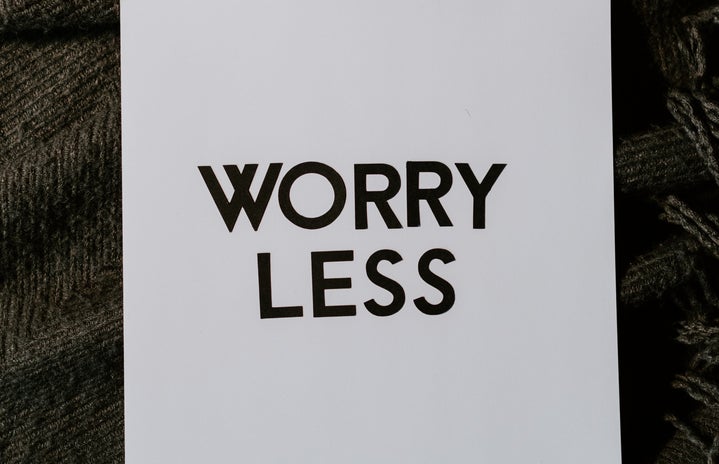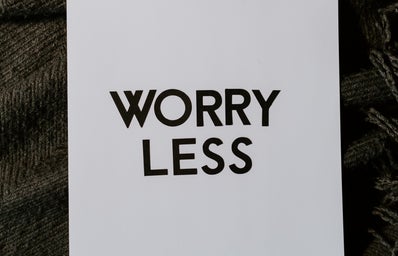Oh no. Why did I just say that? Do they actually like me as a person or are they just being polite? What if everyone secretly is plotting against me? Why did I just make awkward eye contact with them? These are just a handful of questions that go through my mind when I am having a social interaction.
I have briefly touched upon my social anxiety in previous articles I have written, but many people have told me that I should share more about how I have learned to live with it.
In the past, I have been told that I am super bubbly and funny. I’ve also been told that I look like I have my life together, because I am involved in a lot or because I have a lot of friends. I think this is true to an extent, but like I will mention again later on in this article, a person can easily put on a front that is very different from how they actually feel on the inside.
I used to be more like that, especially before the pandemic. I was able to give a presentation in front of a class without any problem. It was really easy for me to talk to people, and I did not care nearly as much if someone didn’t like me.
My freshman year of college was where my social anxiety really started. After having the end of my senior year on Zoom, I was unable to partake in some of the key milestones that students take in high school with some of the best people I have ever met. I was isolated and moved to college 6 hours away from home in a small college town where I knew no one. I remember having to meet most people through social media, and I did not feel like I made super genuine connections with anyone that I would have made organically in person. Besides one person, I felt like I had no one, and even that person had already established a friend group. If it wasn’t for her asking me to hang out a few months later, I would have never been introduced to some of the people I now call my best friends.
Even with these friendships, as soon as school resumed in person my sophomore year of college, I panicked and could not handle being around so many people. I did not know what was wrong with me, as I can be pretty extroverted at times. My social anxiety ended up getting the best of me, and I went home until spring quarter of that year. When I came back, I pretty much just stuck to my friends I already had, only went to class, and did not say anything whenever I had to attend some sort of event outside of this.
I thought that when I transferred to a new school, it would be easier, but I was wrong. The more I went to events and tried to put myself out there, the more insecure I would feel. If someone tried to strike up a conversation with me, I would question what their motivations were. It is so difficult to have a conversation with someone when you constantly have these voices in the back of your head telling you that everyone around you thinks you’re crazy or awkward.
Missing out on social events or avoiding going to places out of fear of having to interact with others made me really sad. I have had to learn to expose myself, even if the event was very casual. I told myself that the more I go, the easier it will get.
I definitely consider myself to be an introverted extrovert, as I do enjoy being social, but I also like going out independently. I also value my alone time. Not everyone I hang out with is someone I consider a friend, especially if it is with a group of people that I hardly know. It is important to remember to not associate someone hanging out with big groups of people as someone who has a lot of friends. This isn’t always the case, but for the most part, I can figure out if I click with a person if I can talk to them without experiencing many social anxiety symptoms when first interacting with them.
I am one who seeks quality friendships over quantity, and I have learned to accept that. Some big friend groups do tend to be successful, but for me, it doesn’t always lead to much more than constantly questioning if I have an equal bond with the other people in the group compared to others. The constant social anxiety just isn’t worth it for me, and going into a big event knowing that my main goal is to enjoy it for myself, and if I happen to connect with someone, it will just be an added bonus.
One of the most beneficial things I have started doing is thinking to myself, “What is the worst thing that could happen?” The worst case scenario would be that my paranoid thoughts are true, and even if that is the case, so what? If a person doesn’t like me, then that just makes it easier for me to move on and strike up a conversation with someone else, who could end up being a close friend later on. After all, I did meet my best friend at a Bat Mitzvah when I was 13, which wouldn’t have happened if I didn’t talk to many people beforehand to know that she was someone I would get along with.
Another thing I tell myself is that even though everyone may look like they are all close in one big friend group, you don’t really know how close they actually are from an outsider’s perspective. I’ve been in friend groups where aside from a few people, I hardly knew anything about most of the people, which really tells you something. I tell myself that it is more than okay if I show up to events with just one person or even alone and that I don’t have to come with a big group to have a good time.
I will probably struggle with social anxiety for a long time, but I can definitely tell that it is improving. I also know that my progress isn’t always linear, as my levels of confidence can easily shift depending on my current circumstances, causing my social anxiety to spike or decrease. It is important for me to always remember to continue exposing myself to situations, even if I am slightly uncomfortable, as I will need it to have the confidence to go out if my social anxiety happens to increase.


